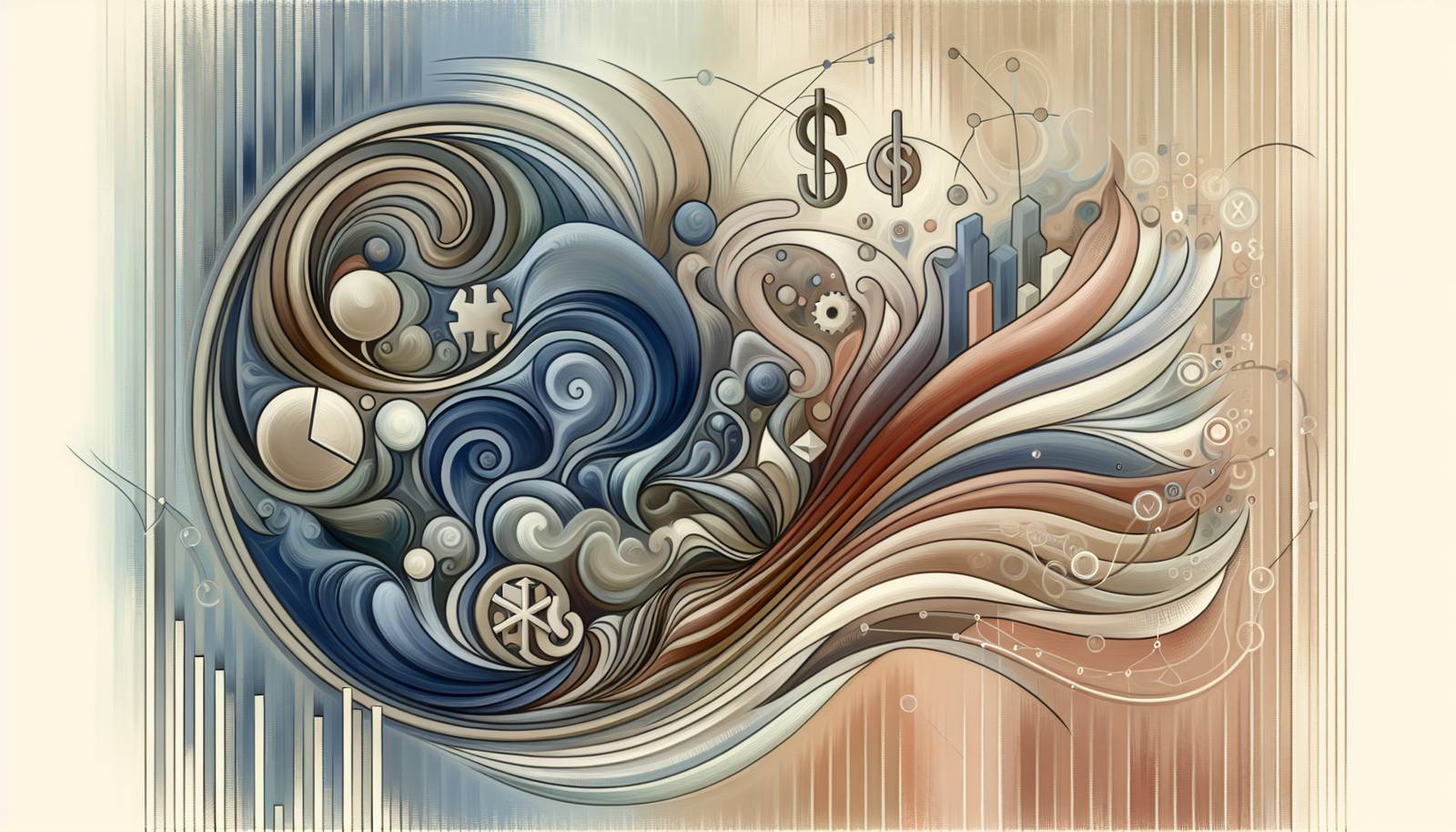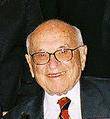
FAQ About Milton Friedman

Who was Milton Friedman?
Milton Friedman was an American economist and a prominent advocate of free-market policies. He was born on July 31, 1912, and passed away on November 16, 2006. Friedman was awarded the Nobel Memorial Prize in Economic Sciences in 1976 for his research on consumption analysis, monetary history and theory, and the complexity of stabilization policy. His work had a profound influence on contemporary economic thought.

What is Milton Friedman known for?
Milton Friedman is best known for his strong belief in free-market capitalism and his criticism of government intervention. He popularized the concept of monetarism, emphasizing the role of governments in controlling the amount of money in circulation. His ideas greatly influenced policies of monetary control to tackle inflation and have guided many central banks around the world.

What is "monetarism" as proposed by Milton Friedman?
Monetarism is an economic theory that focuses on the macroeconomic effects of the supply of money and central banking. Under this theory, Friedman argued that the regulation of money supply should be the main tool of public policy for managing economic fluctuations, rather than fiscal policy. He posited that variations in the money supply have major short-term and long-term effects on the economy, particularly influencing inflation and employment.

What did Milton Friedman believe about inflation?
Milton Friedman famously stated that 'inflation is always and everywhere a monetary phenomenon.' He argued that inflation occurs when there is too much money chasing too few goods. Thus, controlling the money supply is crucial to managing inflation rates. His perspectives on inflation challenged the then-dominant Keynesian economics, which suggested fiscal measures as solutions to inflationary pressures.

How did Milton Friedman influence economic policy?
Friedman's work reshaped macroeconomic theory by promoting monetarism and criticizing Keynesianism. During the late 20th century, many governments adopted policies that focused on controlling inflation through monetary policy rather than fiscal stimulus. Notably, his ideas influenced the monetary policies of the Federal Reserve in the United States and central banks worldwide.

What is Milton Friedman's connection to free-market economics?
Milton Friedman was a leading advocate for free-market policies, arguing that markets should operate without government intervention. He believed that economic freedom was a necessary condition for political freedom and believed in minimal government intervention in economic affairs, suggesting that free markets lead to better outcomes for society.

What was Friedman's stance on government intervention?
Friedman was generally opposed to government intervention in the economy. He believed that such interventions typically lead to inefficiencies and unintended consequences. His work often criticized government spending and regulation, arguing that free markets are more effective at allocating resources.

What is the Friedman Doctrine?
The Friedman Doctrine, also known as the Shareholder Theory, is the idea that the primary responsibility of a business is to its shareholders. According to this theory, articulated by Friedman in 1970, the main goal of a company should be to maximize profits, as long as it stays within the rules of the game, meaning engaging in open and free competition without deception or fraud.

Did Milton Friedman support the idea of a free market?
Yes, Milton Friedman was a strong proponent of the free market system. He believed that free markets encourage innovation, efficiency, and economic freedom. Friedman argued that when markets are allowed to operate freely without unnecessary government intervention, they naturally reach equilibrium, benefiting society as a whole.

How did Friedman's ideas differ from Keynesian economics?
Milton Friedman and John Maynard Keynes had contrasting views, particularly regarding the role of government in the economy. While Keynesian economics supports active government intervention to manage economic cycles through fiscal policy, Friedman emphasized monetary policy and the control of money supply. He criticized Keynesianism for focusing on fiscal measures, which he believed could lead to inflation and other economic imbalances.

What was Milton Friedman's view on education?
Milton Friedman advocated for school choice and proposed the concept of education vouchers to increase competition among schools. He believed that providing parents with vouchers to send their children to schools of their choice would improve education standards by fostering competition and innovation in the education sector.

What is Milton Friedman's impact on monetary policy today?
Friedman's legacy continues to influence monetary policy around the world, particularly regarding the prioritization of controlling inflation. Central banks, such as the Federal Reserve, utilize tools like interest rate adjustments to manage the money supply and maintain price stability, reflecting Friedman's monetarist principles.

What contributions did Milton Friedman make to economic thought?
Milton Friedman contributed extensively to various fields of economic thought, including theories of consumption, monetary policy, and free-market capitalism. His book A Monetary History of the United States, co-authored with Anna Schwartz, and his analyses on consumption highlighted the behavioral insights regarding how individuals and economies manage spending and saving. Friedman's advocacy of monetarism and limited government intervention influenced several generations of economists and policymakers.

What was the "Monetary History of the United States" by Friedman about?
A Monetary History of the United States, 1867–1960, co-authored by Milton Friedman and Anna Schwartz, is a seminal work that examines the role of money in the American economy. The book details how monetary policy decisions impact economic events and business cycles, emphasizing the importance of understanding the causes and consequences of monetary fluctuations. It provided substantial evidence supporting the idea that poor monetary policies contributed to economic downturns such as the Great Depression.

How did Milton Friedman view government welfare programs?
Milton Friedman was critical of traditional government welfare programs, contending that they were often inefficient and counterproductive. Instead, he proposed a negative income tax system, which would directly provide financial support to individuals with incomes below a certain level. This approach aimed to reduce poverty more effectively while maintaining incentives for individuals to work.

What is the negative income tax proposed by Milton Friedman?
The negative income tax is a concept proposed by Milton Friedman to provide financial support to low-income earners. Under this system, people earning below a predetermined threshold would receive supplemental pay from the government instead of paying taxes. This idea was designed to streamline welfare, making it more efficient, and providing better incentives for work than traditional welfare systems.

Did Milton Friedman write any influential books?
Yes, Milton Friedman authored several influential books that have left a lasting impact on economic thought. Some of his notable works include A Monetary History of the United States, Capitalism and Freedom, and Free to Choose. These works discuss a range of topics, from monetary policy to the role of government and the benefits of free-market capitalism, and have been used extensively in economic academia and policy discussion.

What was the impact of Milton Friedman's "Free to Choose" series?
Free to Choose was a book and television series created by Milton Friedman and his wife, Rose Friedman, which had a profound impact on public understanding and acceptance of market economics. The series discusses how personal and economic freedom are interconnected and makes the case for minimizing government intervention in the economy. It helped popularize Friedman's ideas and brought them to a wider audience beyond academia.

Did Milton Friedman have any controversies or criticisms?
Milton Friedman's ideas have been subject to substantial debate and criticism. Critics argue that his policies may lead to increased economic inequality and that his focus on monetary policy neglects other macroeconomic variables. Additionally, some have criticized monetarism for its limitations in addressing economic downturns like the 2008 financial crisis, where fiscal interventions were deemed necessary.

What role did Milton Friedman play in shaping modern economic thought?
Milton Friedman played a pivotal role in shaping contemporary economic theories by challenging and reshaping the prevailing Keynesian doctrines of his time. His advocacy for monetarism, reduced government intervention, and free-market principles influenced both academic economics and practical policymaking, contributing to the adoption of these ideas in various forms across the globe. His impact is evident in how central banks prioritize controlling inflation and in the broader acceptance of free-market principles worldwide.
